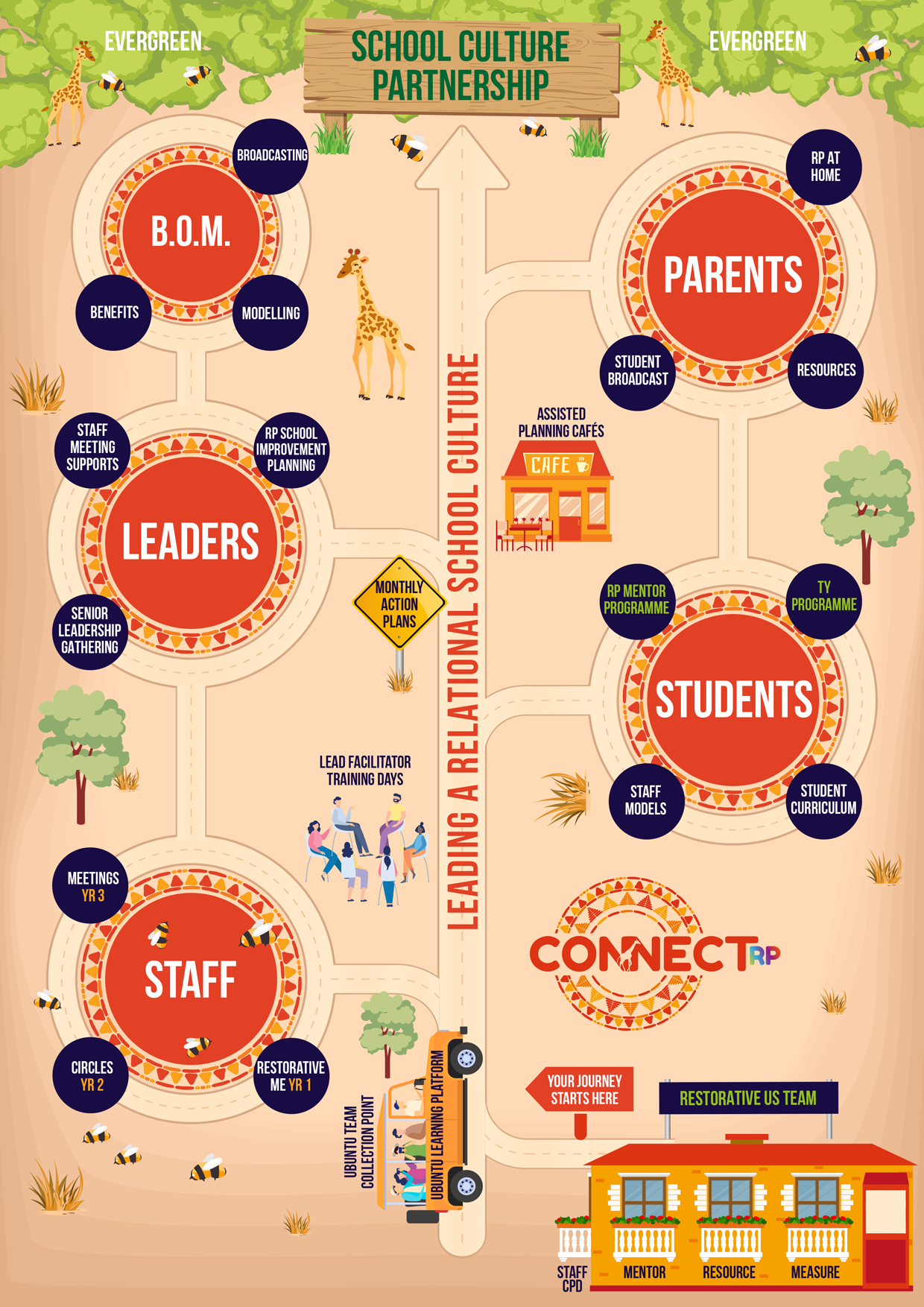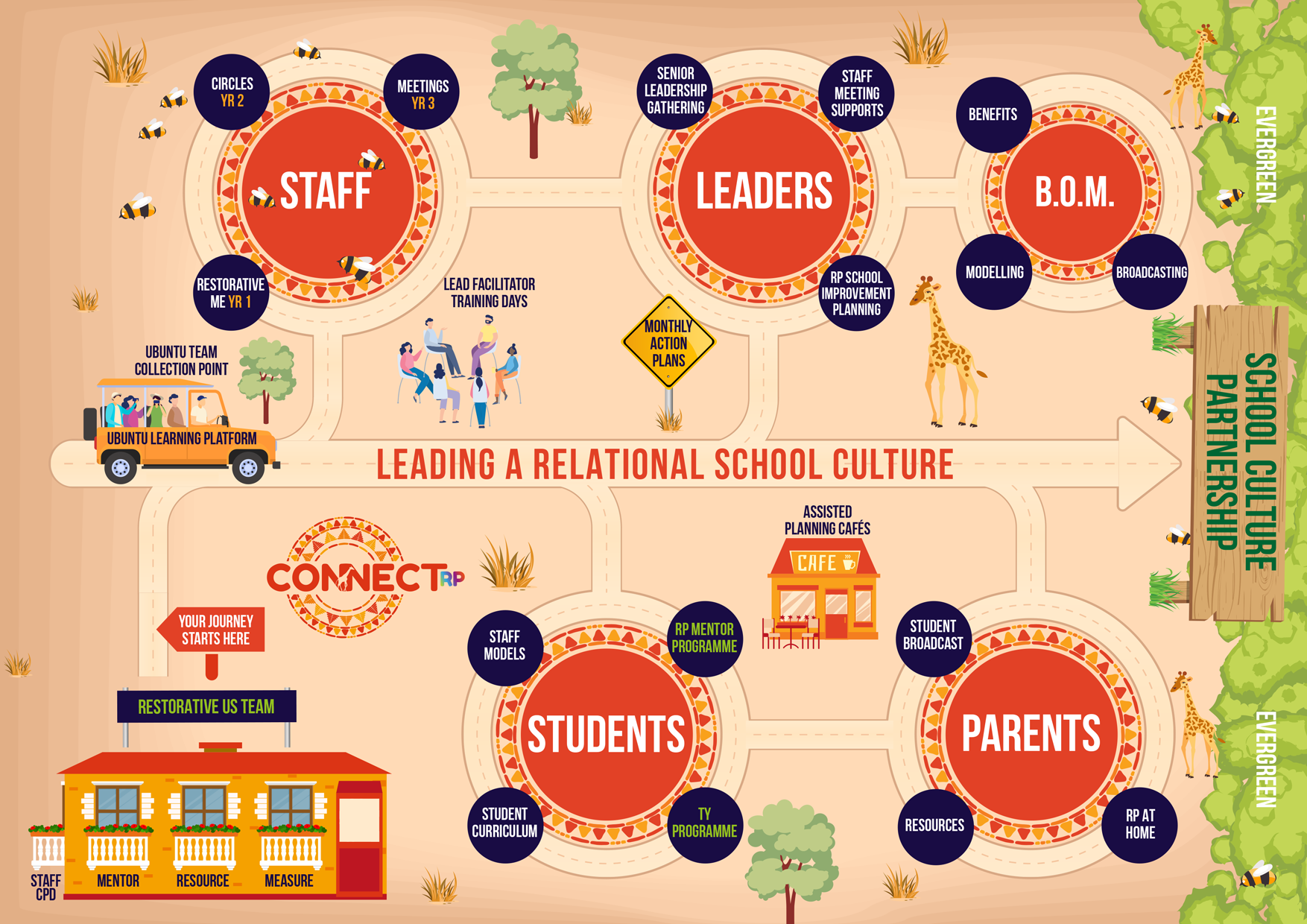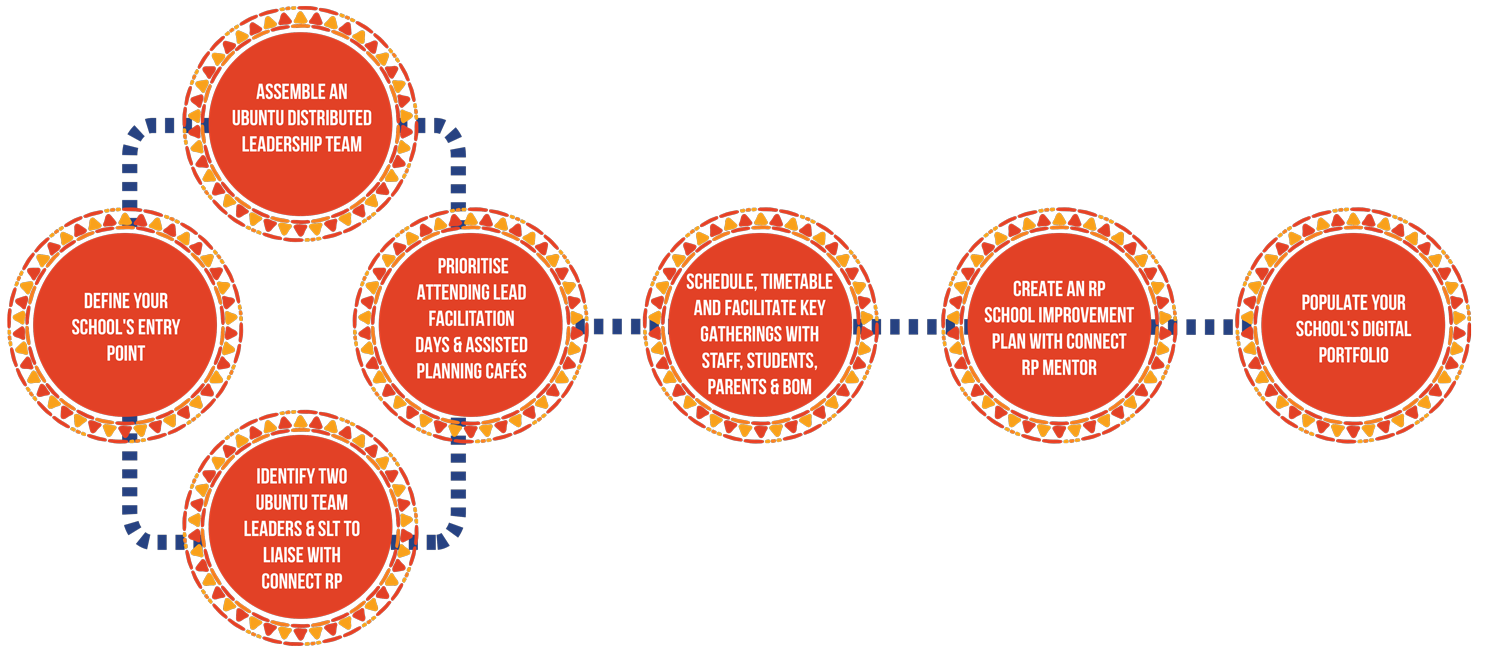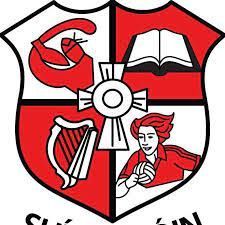School Culture Partnership
Our school culture partnership supports schools committed to Restorative Practice in a holistic way. We move beyond a 'train and hope' model and seek sustainable ways to embed relational thinking, practices, pedagogy and language - working together to transform and enhance your school's culture where our values and actions match!
- Are you looking to embed Restorative Practice within your school community in an authentic, holistic, sustainable way that enhances and transforms your school culture?
- Are you seeking to enable a distributed leadership model that serves the whole school community and enables an effective RP School Improvement plan?
- Are you inviting ways to enhance effective teaching and learning, reduce stress levels for staff, and positive engagement for students and parents?
If you answered 'Yes' to the above, then our School Culture Partnership is for you. The ongoing partnerships, complete suite of courses and resources for all stakeholders, and regular action plans will mentor, resource and measure the impact of RP within your school community. Scroll on down for more information.
Connect RP's Role in Transforming Your School
If you are a school leader interested in our school culture partnership
Benefits of the School Cultural Partnership
A structured approach with everything you need to support your school community to grow and develop a Restorative TEAM; building internal capacity, leadership and sustainability.
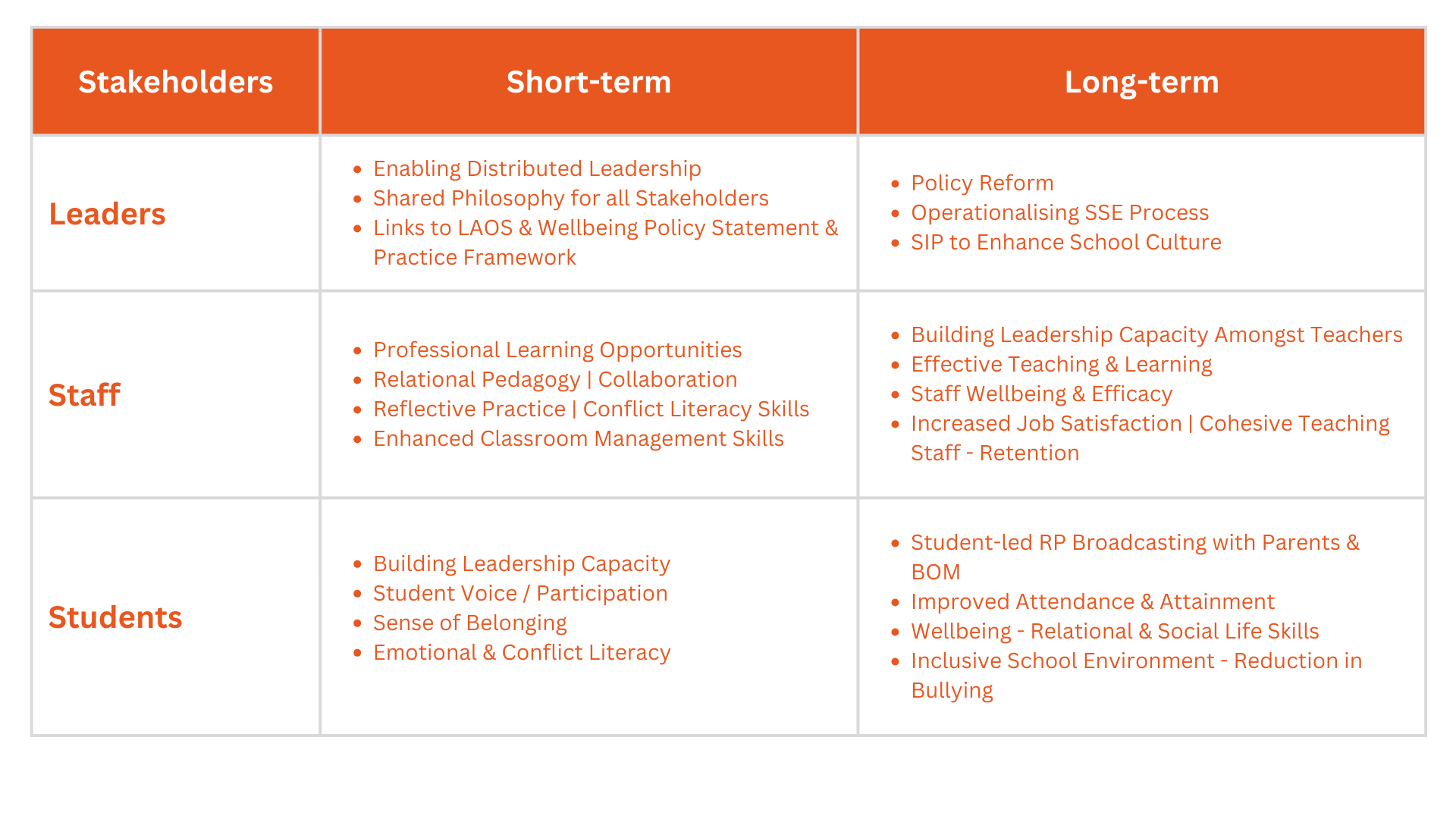
If you are a school leader interested in our school culture partnership
What Our Schools Have Said...
Enter your details below to access our webinar for more information.
We take your privacy very seriously and will only use your details to send you your free resources and relevant follow up emails. You can unsubscribe at any time. To see how we process your data, please refer to our Privacy Policy.

